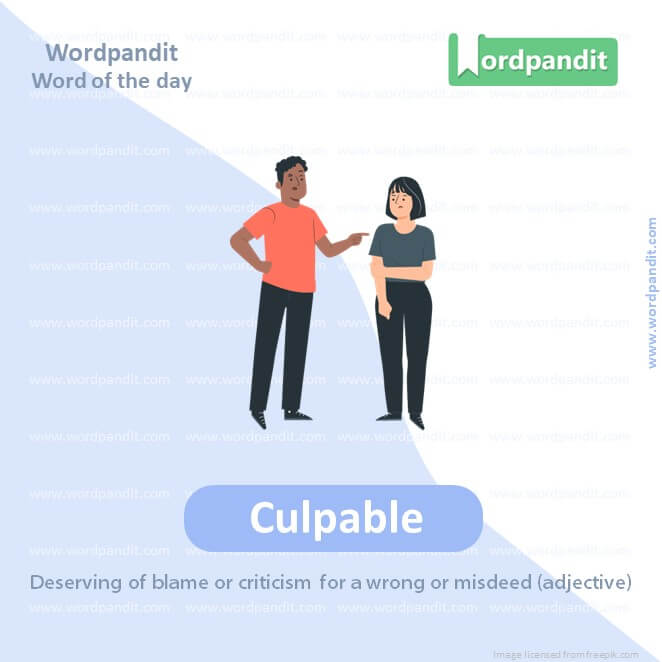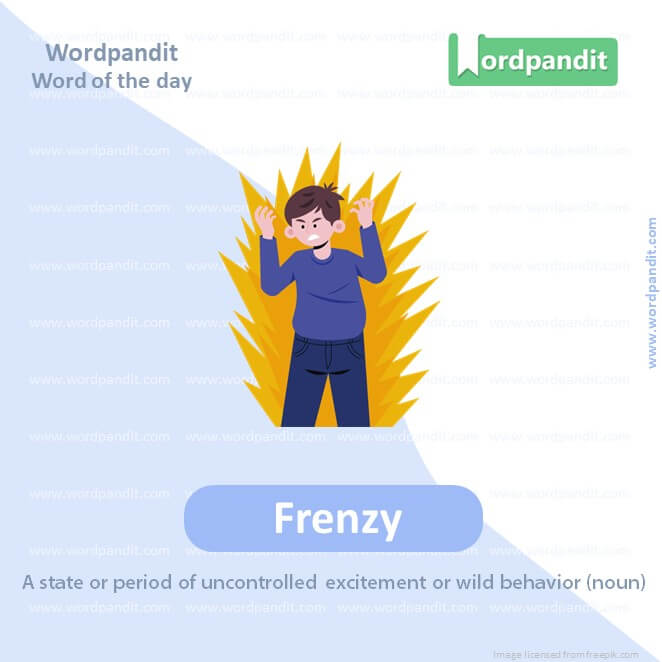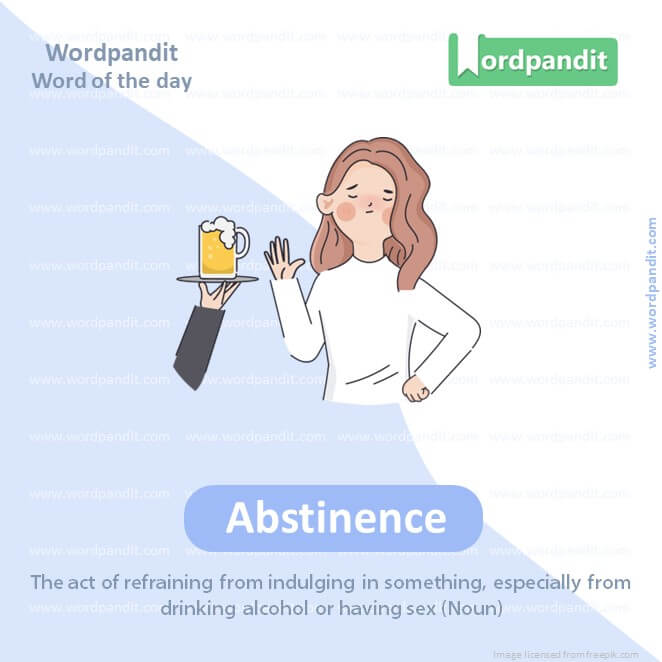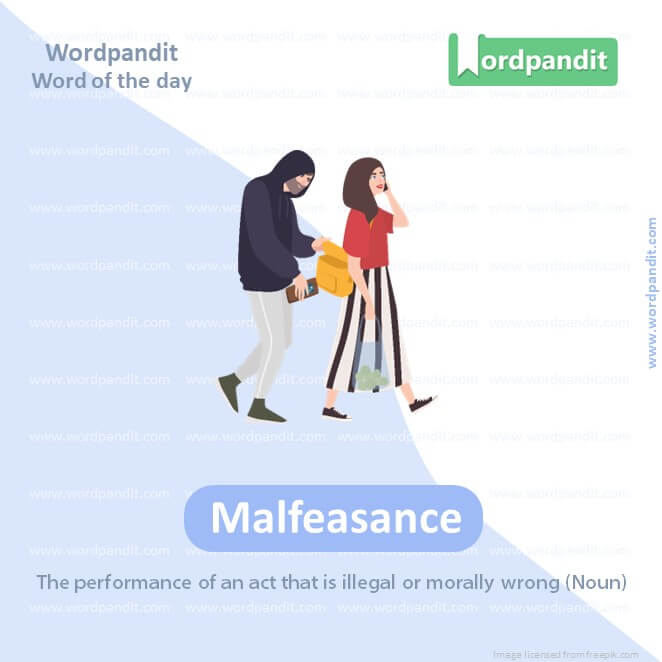Daily Vocabulary Words: Enhance Your Lexicon with Leading Newspapers & Publications
Welcome to the Daily Vocabulary section at Wordpandit!
Our mission is straightforward: to bring you essential vocabulary words featured in top newspapers and publications worldwide. By focusing on words you’ll encounter in renowned sources, we aim to help you enhance your vocabulary effectively and practically.
Our selection includes words from:
– The New York Times
– The Washington Post
– Scientific American
– BBC
– The Guardian
– Psychology Today
– Wall Street Journal
– The Economist
– The Hindu
– The Times of India
– The Economic Times
– Hindustan Times
– Live Mint
– The Indian Express
– And many more.
We are committed to your vocabulary development. Simply visit this section regularly and explore the daily posts. This is your go-to repository for commonly used words, providing significant practical benefits by familiarizing you with vocabulary from the leading publications listed above.
Make it a habit to visit our website daily and expand your lexicon with words from top newspapers and publications. (edited)

WORD 1: Culpable
CONTEXT: The amended Section 106(1) of the Sanhita says: “Whoever causes death of any person by doing any rash or negligent act not amounting to culpable homicide, shall be punished with imprisonment of either description for a term which may extend to five years, and shall also be liable to fine; and if such act is done by a registered medical practitioner while performing medical procedure, he shall be punished with imprisonment of either description for a term which may extend to two years, and shall also be liable to fine.”
SOURCE: The Hindu
EXPLANATORY PARAGRAPH: Imagine if you accidentally broke your friend’s toy because you were not being careful. If someone says you are “culpable,” it means you are the one responsible for what happened. It’s like being the person who made the mistake or caused the problem, even if it was an accident.
MEANING: Deserving of blame or criticism for a wrong or misdeed (adjective)
PRONUNCIATION: KUHL-puh-buhl
SYNONYMS: blameworthy, responsible, at fault, guilty, answerable, liable, accountable
USAGE EXAMPLES:
1. The dog was culpable for chewing up the new shoes.
2. The teacher said the student was culpable for the mess in the classroom.
3. The company was found culpable for the pollution in the river.
4. If you break the rules, you are culpable for the consequences.

WORD 2: Frenzy
CONTEXT: While many motorists and commuters who had reached petrol bunks to top-up their vehicles were caught unawares by the massive rush, a few others, anticipating the rush, said that they managed to avoid the fuel refilling frenzy.
SOURCE: The Hindu
EXPLANATORY PARAGRAPH: Imagine a lot of kids at a birthday party all trying to grab candy at the same time, and everyone is moving really fast and making noise. That’s what a “frenzy” is like—a time when people or animals are so excited or upset that they act wild and out of control.
MEANING: A state or period of uncontrolled excitement or wild behavior (noun)
PRONUNCIATION: FREN-zee
SYNONYMS: craze, hysteria, mania, turmoil, agitation, uproar, chaos
USAGE EXAMPLES:
1. The news caused a frenzy in the town, with everyone talking about it.
2. During the sale, shoppers were in a frenzy to grab the best deals.
3. The crowd went into a frenzy when the band started playing.
4. The kids were in a frenzy as they raced to find Easter eggs.
WORD 3: Chariness
CONTEXT: The Court has opted to subordinate petitioners’ entreaties to protect larger public interest to its chariness to substitute “its own wisdom over the regulatory policies” of the Securities and Exchange Board of India.
SOURCE: The Hindu
EXPLANATORY PARAGRAPH: Imagine if you’re trying to pick the best apple from a tree, and you are very careful not to pick a bad one. If you are showing “chariness,” it means you are being very careful and cautious about what you choose or do.
MEANING: The quality of being very cautious or careful (noun).
PRONUNCIATION: CHAIR-ee-ness
SYNONYMS: caution, wariness, carefulness, circumspection, prudence, vigilance, discretion
USAGE EXAMPLES:
1. She approached the unfamiliar situation with chariness.
2. His chariness in making decisions kept him from taking unnecessary risks.
3. The chariness of the driver helped avoid an accident on the icy road.
4. The chariness of the child around strangers is a good thing.

WORD 4: Conglomerate
CONTEXT: The decision to leave the crucial question of SEBI’s perceived tardiness in investigating allegations of corporate malfeasance and market manipulation by a large conglomerate back to the remit of the very same watchdog hints at a degree of judicial abstinence that may only undermine the larger public good.
SOURCE: The Hindu
EXPLANATORY PARAGRAPH: Imagine a big ball made out of lots of smaller things stuck together, like different kinds of candies all in one big candy ball. A “conglomerate” is something like that—a big thing made from many smaller parts, especially a company made of lots of smaller companies.
MEANING: A large corporation formed by merging several companies or a mixture of different things (Noun)
PRONUNCIATION: kuhn-GLOM-er-it
SYNONYMS: corporation, group, combine, mixture, amalgamation, consortium, alliance
USAGE EXAMPLES:
1. The business conglomerate owns many different brands, from food to electronics.
2. The artist created a conglomerate of colors and shapes in her painting.
3. The company grew into a conglomerate by buying smaller businesses.
4. The conglomerate of rocks was found at the base of the mountain.

WORD 5: Abstinence
CONTEXT: The decision to leave the crucial question of SEBI’s perceived tardiness in investigating allegations of corporate malfeasance and market manipulation by a large conglomerate back to the remit of the very same watchdog hints at a degree of judicial abstinence that may only undermine the larger public good.
SOURCE: The Hindu
EXPLANATORY PARAGRAPH: Imagine you have a big jar of candy, but you decide not to eat any of it for a whole week, even though you really want to. That’s called “abstinence”—when you choose not to do something that you might like to do, especially something that’s usually fun or enjoyable.
MEANING: The act of refraining from indulging in something, especially from drinking alcohol or having sex (Noun)
PRONUNCIATION: AB-stuh-nuhns
SYNONYMS: self-control, restraint, temperance, moderation, self-denial, sobriety, forbearance
USAGE EXAMPLES:
1. The doctor advised abstinence from sweets to improve her health.
2. He practiced abstinence from social media during the exam period.
3. Abstinence from alcohol is important for some people’s health.
4. The group promoted abstinence as a way to maintain a healthy lifestyle.

WORD 6: Malfeasance
CONTEXT: The decision to leave the crucial question of SEBI’s perceived tardiness in investigating allegations of corporate malfeasance and market manipulation by a large conglomerate back to the remit of the very same watchdog hints at a degree of judicial abstinence that may only undermine the larger public good.
SOURCE: The Hindu
EXPLANATORY PARAGRAPH: Imagine if someone in charge, like a teacher or a coach, did something really wrong, like lying or cheating. “Malfeasance” is when a person who has a responsibility or power does something bad or illegal.
MEANING: The performance of an act that is illegal or morally wrong (Noun)
PRONUNCIATION: mal-FEE-zuhns
SYNONYMS: misconduct, wrongdoing, corruption, fraud, dishonesty, impropriety, transgression
USAGE EXAMPLES:
1. The mayor was accused of malfeasance after the misuse of public funds.
2. The company was investigated for malfeasance in its financial dealings.
3. Malfeasance in office led to the official’s resignation.
4. The scandal exposed the malfeasance of several top executives.
WORD 7: Incarcerate
CONTEXT: We coded the attacks on a scale where a high level of attack has occurred on organisations that have not only run out of funds but also whose leaders have either been sent to prison or have charges that can potentially incarcerate them.
SOURCE: The Hindu
EXPLANATORY PARAGRAPH: Imagine if you did something really wrong, and you were put in a place where you couldn’t leave, like a time-out, but for adults, it’s called being “incarcerated.” It means being locked up in a place like a jail because of doing something bad.
MEANING: To put someone in prison or another place where they cannot leave (verb).
PRONUNCIATION: in-KAR-suh-rayt
SYNONYMS: imprison, confine, detain, jail, lock up, intern, put away
USAGE EXAMPLES:
1. The judge decided to incarcerate the criminal for ten years.
2. They were incarcerated for their role in the robbery.
3. The new law led to more people being incarcerated for minor offenses.
4. After the trial, he was incarcerated in the state prison.
WORD 8: Abrasive
CONTEXT: They provide answers that help us understand their motivations, opinions on controversial issues, and future plans, but sometimes they can be abrasive, evasive, or maintain a stony silence.
SOURCE: The Hindu
EXPLANATORY PARAGRAPH: Imagine if you rub sandpaper on your hand, it feels rough and might hurt. If something is “abrasive,” it can be rough or hurtful, either in the way it feels, like sandpaper, or in the way someone talks to you, like if they are rude or harsh.
MEANING: Rough and able to scratch or wear down surfaces (adjective). Rude or harsh in manner or speech (adjective).
PRONUNCIATION: uh-BRAY-siv
SYNONYMS: rough, harsh, coarse, grating, irritating, caustic, cutting
USAGE EXAMPLES:
1. The abrasive surface of the rock scratched my skin.
2. His abrasive comments hurt her feelings.
3. She used an abrasive cleaner to scrub the dirty pan.
4. The teacher’s abrasive tone made the students uncomfortable.
WORD 9: Evasive
CONTEXT: They provide answers that help us understand their motivations, opinions on controversial issues, and future plans, but sometimes they can be abrasive, evasive, or maintain a stony silence.
SOURCE: The Hindu
EXPLANATORY PARAGRAPH: Imagine if someone asks you a question like “Did you eat the last cookie?” but instead of answering, you start talking about your favorite cartoon. That’s being “evasive”—when you avoid giving a straight answer or try to get away from something.
MEANING: Trying to avoid something, especially by being indirect or tricky (adjective).
PRONUNCIATION: ih-VAY-siv
SYNONYMS: elusive, dodging, avoiding, indirect, shifty, tricky, ambiguous
USAGE EXAMPLES:
1. The politician gave an evasive answer to the difficult question.
2. She was evasive when asked about her plans for the weekend.
3. The cat was evasive, dodging every attempt to catch it.
4. He made an evasive move to avoid being tagged in the game.
WORD 10: Prudent
CONTEXT: The concerns on debt sustainability can be construed as a call for more prudent management of debt in the medium term.
SOURCE: The Hindu
EXPLANATORY PARAGRAPH: Imagine if you have a whole bunch of candies, but instead of eating them all at once, you save some for later. Being “prudent” means being smart and careful about what you do, thinking about what’s best in the long run.
MEANING: Showing good judgment and being careful about what you do or plan (adjective).
PRONUNCIATION: PROO-duhnt
SYNONYMS: wise, cautious, careful, sensible, judicious, thoughtful, shrewd
USAGE EXAMPLES:
1. It was prudent to save some money for emergencies.
2. She made a prudent decision to leave early before the storm arrived.
3. The prudent student started studying well before the exam.
4. It’s prudent to check the weather before going on a hike.
Vocabulary Daily Use Words
In the architecturally diverse world of language learning, ‘vocabulary daily use words’ act as a cornerstone. We often take these words for granted, but their significance in day-to-day communications is nothing short of monumental. Mastering these ‘vocabulary daily use words’ should be more than an ancillary task on the sideline; it should take the center stage in your language learning journey.
To begin with, approach ‘vocabulary daily use words’ with the same gusto and reverence as you would an untapped treasure chest. Go beyond the conventional realm of textbooks and explore the world of contemporary literature, newspapers, and digital content. By immersing yourself in these mediums, you’re aligning your learning with real-world language usage, thereby gaining a practical understanding of ‘vocabulary daily use words.’
Memory-enhancing tools add an extra layer of effectiveness to your learning. Flashcards, for example, are a great way to make your study sessions interactive and memory-forging. Coupled with the Leitner system, which is a principle of spacing and repetition, you can ensure better recall and understanding of ‘vocabulary daily use words.’
Furthermore, leveraging mnemonic devices aids in etching the ‘vocabulary daily use words’ into your memory. Associating common words with unique and memorable narratives in your mind enhances their recall. Regular revision and using these words in routine conversations further cement your proficiency.
The potency of immersion as a language learning strategy cannot be emphasized enough. Conversing with native speakers, if possible, provides context to ‘vocabulary daily use words’ and boosts your fluency.
In conclusion, mastering the ‘vocabulary daily use words’ is an enriching journey that requires ongoing effort, continual exposure, and hands-on practice. The strategy of learning through various mediums, using memory-enhancing techniques, leveraging mnemonic devices, and immersion can help demystify these words and enhance your overall language proficiency. So, gear up and embrace the linguistic adventure of mastering the ‘vocabulary daily use words.’













